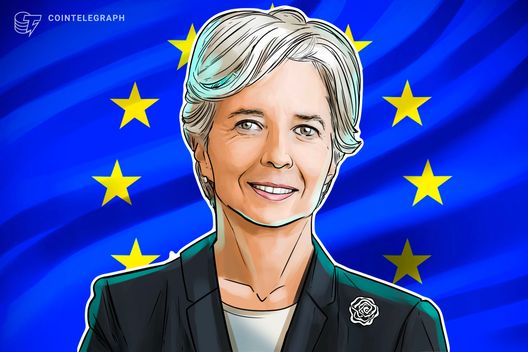

European Central Bank (ECB) President Christine Lagarde has called on EU lawmakers to address regulatory gaps concerning stablecoins, particularly those issued by entities outside the European Union's (EU) Markets in Crypto-Assets (MiCA) framework. Speaking at the ninth annual conference of the European Systemic Risk Board, Lagarde urged for tighter regulations to prevent potential risks to the financial system from non-EU stablecoin issuers.
Lagarde emphasized that the current regulatory landscape doesn't fully account for potential threats from stablecoins operating in the EU but issued outside of its regulatory perimeter. She highlighted the importance of ensuring adequate safeguards to protect EU investors and financial systems. She warned that gaps in the EU's Markets in Crypto-Assets Regulation (MiCA) could expose the financial system to risks.
A key concern raised by Lagarde is the issue of multi-issuance schemes, where an EU entity and a non-EU entity jointly issue fungible stablecoins. In such cases, MiCA requirements do not extend to the non-EU issuer. Lagarde cautioned that in the event of a run, investors would likely prefer to redeem their holdings in the jurisdiction with the strongest safeguards, which is likely to be the EU, where MiCA also prohibits redemption fees. However, the reserves held in the EU may not be sufficient to meet such concentrated demand.
To mitigate these risks, Lagarde urged policymakers to introduce transfer of assets safeguards and robust equivalence regimes. This means non-EU issuers would need to follow the same standards as their EU counterparts to limit risk. She stated that stablecoin issuers outside the EU should not be allowed to operate in the EU unless they comply with “robust equivalence regimes”. These regimes should ensure that EU investors can always redeem their holdings at par value and require issuers to fully back their coins. European legislation should ensure that such schemes cannot operate in the EU unless supported by robust equivalence regimes in other jurisdictions and safeguards relating to the transfer of assets between the EU and non-EU entities.
Lagarde also stressed the need for international cooperation to prevent risks from shifting to weakly regulated markets. She noted that without global standards, risks will always seek the path of least resistance. Federico Cornelli, a commissioner at Italy's market watchdog CONSOB, added that EU rules must also reinforce that cryptocurrencies are not legal tender. He stated that only the euro issued by the ECB is legal tender, and this must be made very clear to all citizens.
The ECB, as the chief banking supervisor and lender of last resort in the eurozone, has placed stablecoin oversight at the center of its stability mandate. The ECB has been exploring the potential rollout of a digital euro for years.